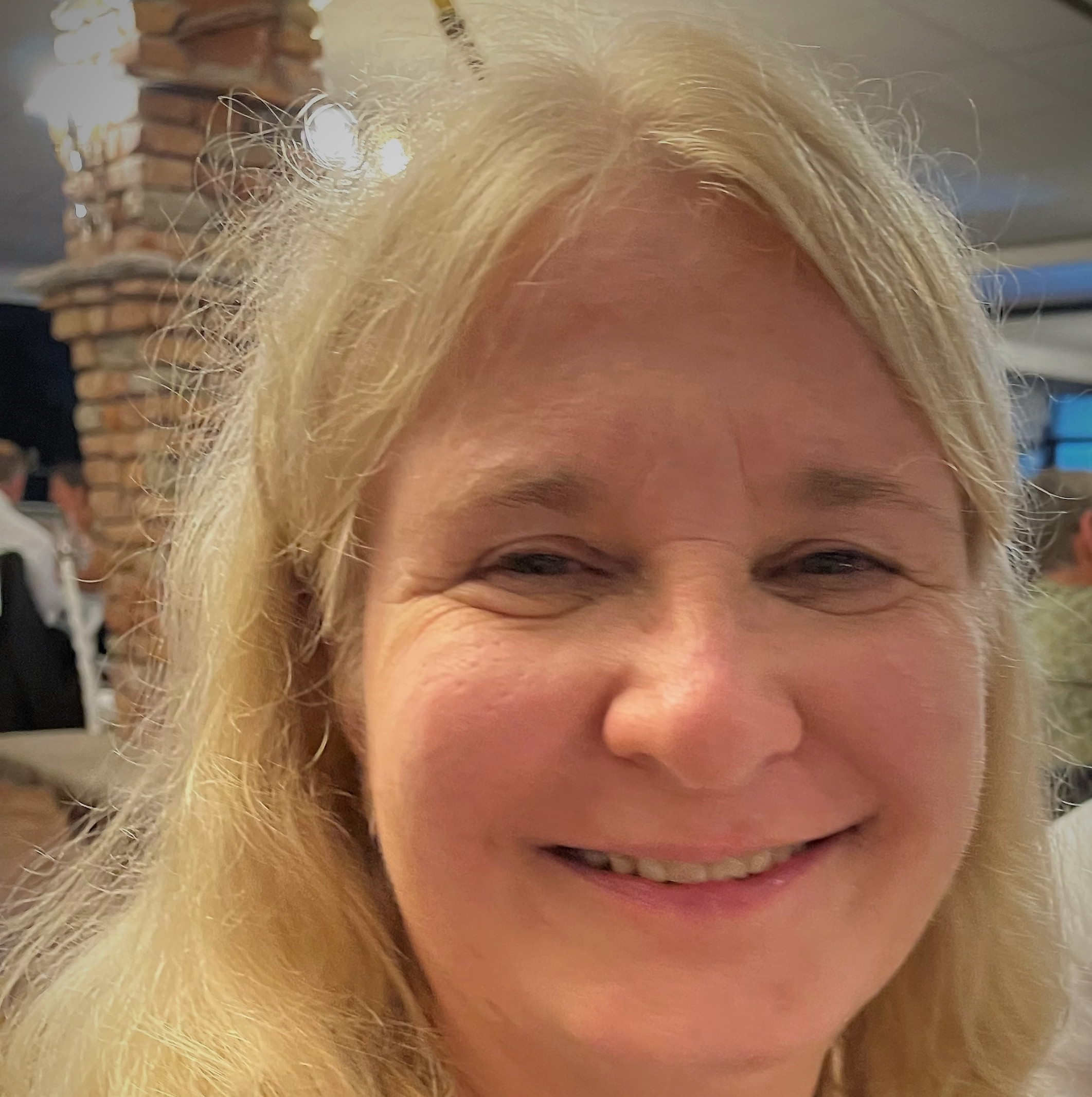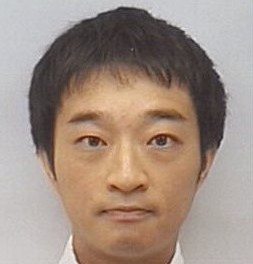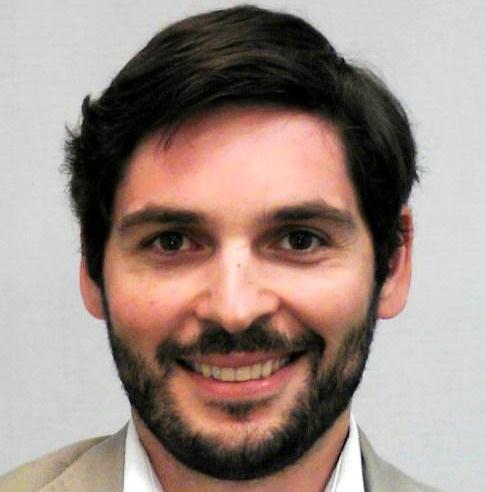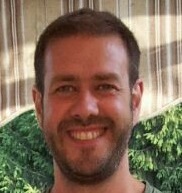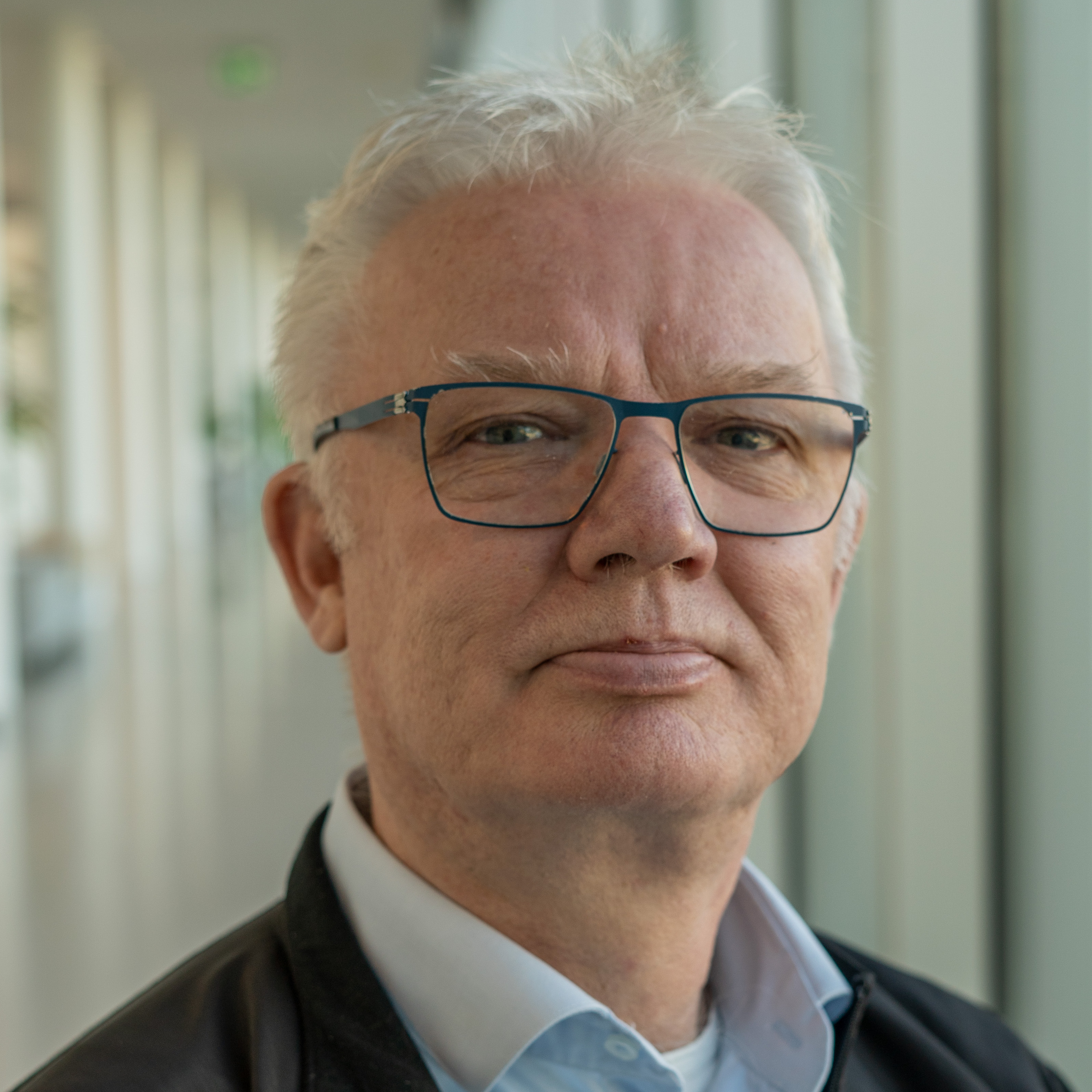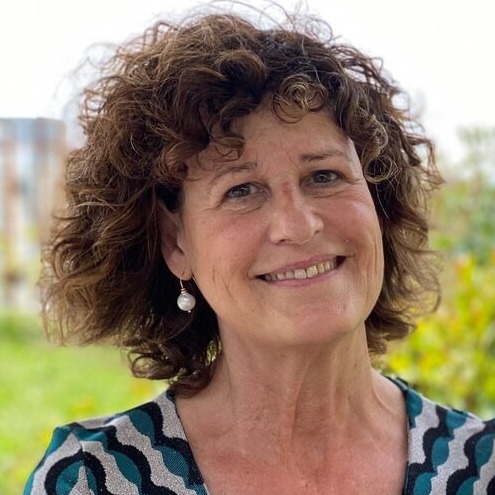Dr. Robert M. Califf was confirmed earlier this year as the 25th Commissioner of Food and Drugs. He also served in 2016 as the 22nd Commissioner, and immediately prior to that as the FDA’s Deputy Commissioner for Medical Products and Tobacco. He has spent a good portion of his career affiliated with Duke University, where he served as a professor of medicine and vice chancellor for clinical and translational research, director of the Duke Translational Medicine Institute, and was the founding director of the Duke Clinical Rese read more...
Speakers
Key Speakers
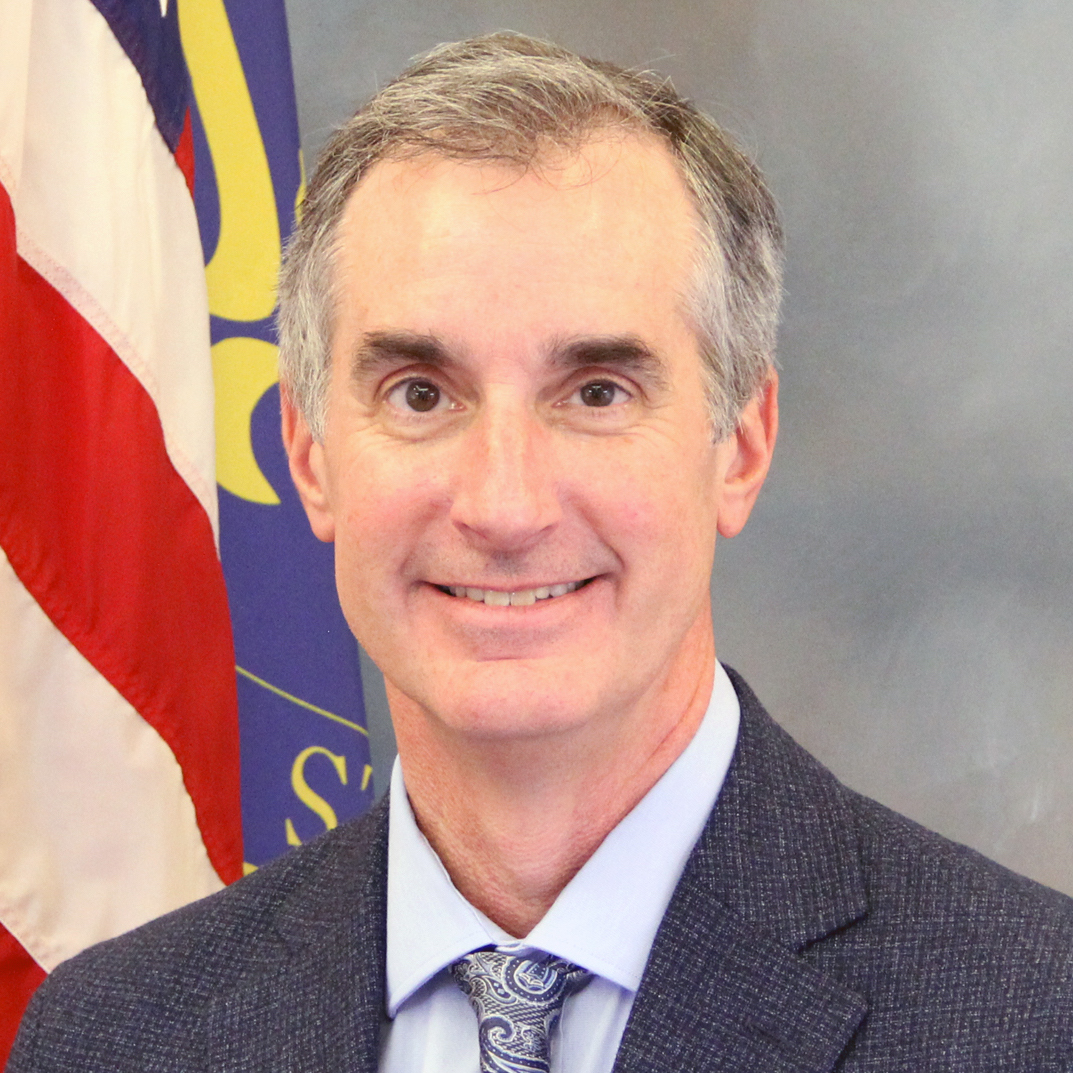
Tucker Patterson, Ph.D.
Director of National Center for Toxicological Research (NCTR)
U.S. Food and Drug Administration (FDA)
Speakers are in alphabetical order by last name
Click the picture to find more info about the speaker

Adel Alrwisan, Ph.D.
Executive Director of Research and Studies Department,
Saudi Food & Drug Authority (SFDA)

Noriaki Arakawa, Ph.D.
Section Chief,
Division of Medicinal Safety Science,
National Institute of Health Sciences (NIHS),
Japan

Wenjun Bao, Ph.D.
Chief Scientist and Director of Advanced Analytics R&D
JMP Statistical Discovery
SAS Institute Inc

Kim Blenman, Ph.D., M.S.
Assistant Professor, Department of Internal Medicine and Department of Computer Science,
Yale University, USA

Julie Chih-yu Chen, Ph.D.
Head of Data Sciences,
Bioinformatics Section,
National Microbiology Laboratory Branch,
Public Health Agency of Canada (PHAC)

Mariana Adelheit Von Collani
Enforcement Advisor, Brazilian Health Regulatory Agency (ANVISA), Brazil

Claudius Griesinger, Ph.D.
Member of the Leadership Team of the JRC’s project portfolio on “Innovation in Life and Health Sciences
European Commission Joint Research Centre (EC, JRC)

Thomas Hartung, M.D./Ph.D.
Chair for Evidence-based Toxicology
Center for Alternatives to Animal Testing (CAAT)
Johns Hopkins Bloomberg School of Public Health
Maryland, USA

Matthias Filter
Head of Study Centre for Food Chain Modelling and Artificial Intelligence German Federal Institute for Risk Assessment (BfR)

Cesare Furlanello
Director of the "Lifescience Innovation Good Healthcare Technology -LIGHT” Center
Founder at HK3 Lab
Brescia, Italy

Philippe Girard, Ph.D.
Vice Director, Head of Medicinal product licences and surveillance,
Swissmedic, Switzerland

Elaine Johanson
Director, Health Informatics Staff, Office of Data, Analytics, & Research (ODAR), U.S. Food and Drug Administration (FDA), USA

Minh Nguyen, Ph.D.
Principal Scientist I at Bioinformatics Institute,
Agency for Science,
Technology and Research (A*STAR)

Anderson da Mota Ribeiro
Chief Data & Analytics Officer (CDAO),
Brazilian Health Regulatory Agency (ANVISA), Brazil

Hiroko Shibata, Ph.D.
Section Chief,
Division of Biological Chemistry and Biologicals,
National Institute of Health Sciences (NIHS),
Japan

Norimasa Tamehiro, Ph.D.
Section Chief,
Division of Biochemistry,
National Institute of Health Sciences (NIHS),
Japan

Katya Tsaioun, Ph.D.
Lead of Evidence-based Toxicology Collaboration
Johns Hopkins Bloomberg School of Public Health (EBTC)

Didier Verloo, Ph.D.
Head of Knowledge Innovation and Partnership Management Unit (KNOW), European Food Safety Authority (EFSA), Italy

Prof. Maurice Whelan, Ph.D.
Deputy Director for Health and Food,
Head of the Systems Toxicology Unit,
European Commission Joint Research Centre (EC-JRC), EU

Russ Wolfinger, Ph.D.
Director of Scientific Discovery and Genomics
JMP Statistical Discovery
SAS Institute Inc
Robert M. Califf, Ph.D.
Commissioner
U.S. Food and Drug Administration (FDA)
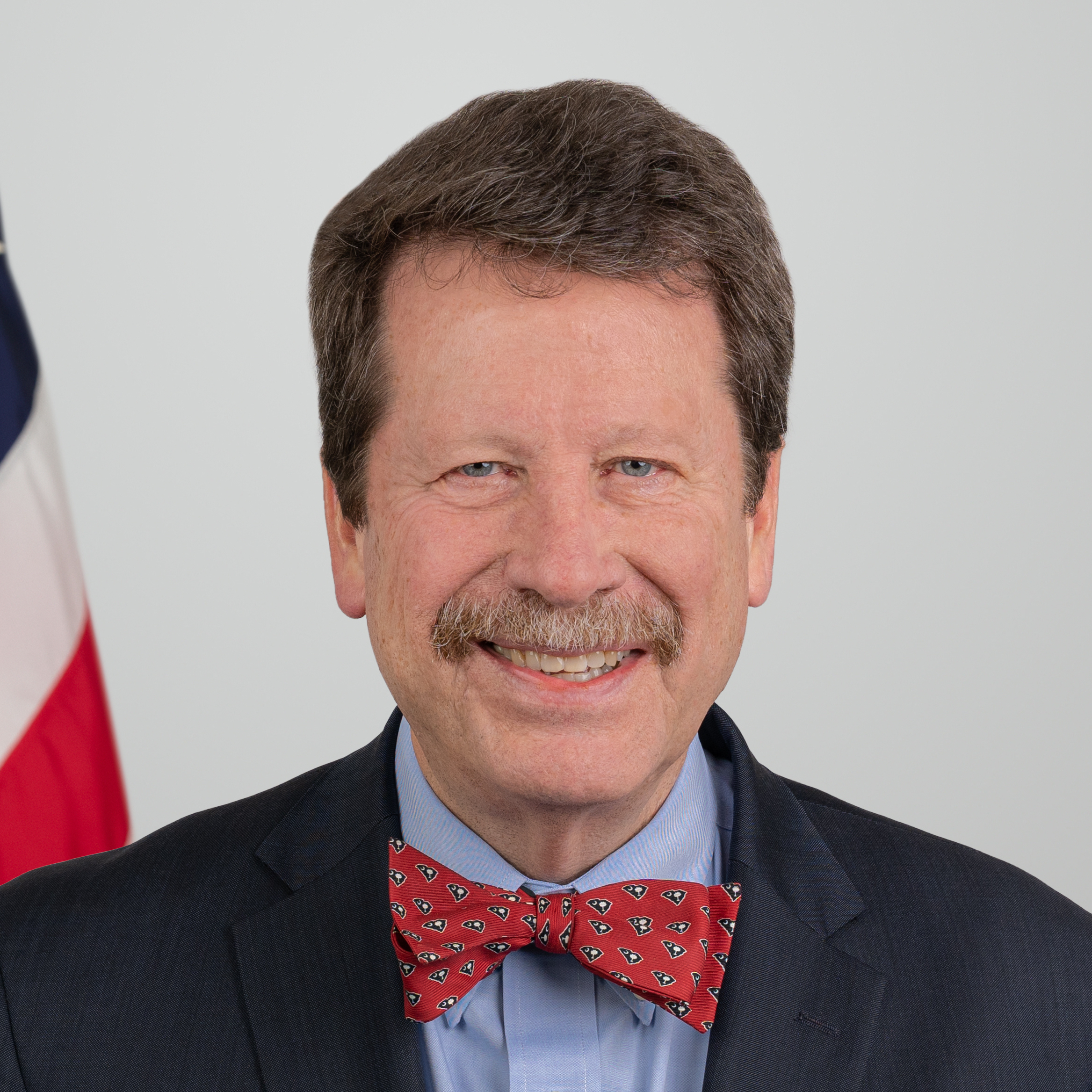
Tucker A. Patterson, Ph.D.
Director of National Center for Toxicological Research (NCTR)
U.S. Food and Drug Administration (FDA)

Tucker A. Patterson, Ph.D. is Center Director at the FDA’s National Center for Toxicological Research (NCTR). Dr. Patterson previously served as the Deputy Director for Research in the Office of the Center Director/Office of Research. Prior to this appointment, he served two years as the Associate Director for Science & Policy and over seven years as the Associate Director and Health Science Program Manager in Regulatory Compliance & Risk Management at NCTR. Dr. Patterson received a B.S. in Chemistry from the University of Ark read more...
Weida Tong, Ph.D.
Chair of Global Coalition of Regulatory Science Research (GCSRS)
Director, Division of Bioinformatics and Biostatistics
National Center for Toxicological Research (NCTR)
U.S. Food and Drug Administration (FDA)

Dr. Weida Tong is the Chair of Global Coalition of Regulatory Science Research (GCSRS). He is working at FDA's National Center for Toxicological Research (NCTR) as a division director for Bioinformatics and Biostatistics.
Michael Renaudin
Lead Swissmedic 4.0
Swissmedic, Swiss agency for therapeutic products
Bern, Switzerland

Michael Renaudin studied social anthropology and later sociology at the University of Bern. After working in IT, project management and adult education (in the private and public sectors), he studied human resources. He has worked at Swissmedic for 12 years. He was first responsible for organisational learning and development, and is currently head of Swissmedic 4.0, Swissmedic's innovation lab. The aim is to quickly develop solutions in the field of AI by developing prototypes and MVPs in order to exploit the technological po read more...
Regulatory landscape and critical Needs for NAMs in the Hazard assessment of industrial chemicals
NAMs to support the screening, prioritisation and read-across are available, continue to be developed and are used to some extent by regulators around the globe, in line with the legal frameworks and regulatory requirements. There are currently only a few endpoints where full replacement of in vivo studies with non-animal methods has been accepted in a way that is suitable for classification and labelling or to conclude on (no)hazard. This presentation will discuss the critical needs for moving towards an animal free system for hazard assessment for industrial chemicals, in line with the regulatory requirements in Eur read more...
Adel Alrwisan, Ph.D.
Executive Director of Research and Studies Department,
Saudi Food & Drug Authority (SFDA)

Prof. Maurice Whelan is Deputy Director of the Directorate for Health and Food and head of the Systems Toxicology Unit at the European Commission's Joint Research Centre (JRC) based in Ispra, Italy. He also heads the JRC's EU Reference Laboratory for alternatives to animal testing (EURL ECVAM). Maurice is the EU co-chair of the OECD Advisory Group on Emerging Science for Chemicals Assessment (ESCA); a member of the Steering Committee of the European Partnership for Alternative Approaches to Animal Testing (EPAA); and chair of read more...
Noriaki Arakawa, Ph.D.
Section Chief,
Division of Medicinal Safety Science,
National Institute of Health Sciences (NIHS),
Japan

Prof. Maurice Whelan is Deputy Director of the Directorate for Health and Food and head of the Systems Toxicology Unit at the European Commission's Joint Research Centre (JRC) based in Ispra, Italy. He also heads the JRC's EU Reference Laboratory for alternatives to animal testing (EURL ECVAM). Maurice is the EU co-chair of the OECD Advisory Group on Emerging Science for Chemicals Assessment (ESCA); a member of the Steering Committee of the European Partnership for Alternative Approaches to Animal Testing (EPAA); and chair of read more...
Wenjun Bao, Ph.D.
Chief Scientist and Director of Advanced Analytics R&D
JMP Statistical Discovery
SAS Institute Inc

Prof. Maurice Whelan is Deputy Director of the Directorate for Health and Food and head of the Systems Toxicology Unit at the European Commission's Joint Research Centre (JRC) based in Ispra, Italy. He also heads the JRC's EU Reference Laboratory for alternatives to animal testing (EURL ECVAM). Maurice is the EU co-chair of the OECD Advisory Group on Emerging Science for Chemicals Assessment (ESCA); a member of the Steering Committee of the European Partnership for Alternative Approaches to Animal Testing (EPAA); and chair of read more...
Szczepan Baran, MS, VMD
Chief Scientific Officer,
VeriSIM Life

Prof. Maurice Whelan is Deputy Director of the Directorate for Health and Food and head of the Systems Toxicology Unit at the European Commission's Joint Research Centre (JRC) based in Ispra, Italy. He also heads the JRC's EU Reference Laboratory for alternatives to animal testing (EURL ECVAM). Maurice is the EU co-chair of the OECD Advisory Group on Emerging Science for Chemicals Assessment (ESCA); a member of the Steering Committee of the European Partnership for Alternative Approaches to Animal Testing (EPAA); and chair of read more...
Kim Blenman, Ph.D., M.S.
Assistant Professor
Department of Internal Medicine and Department of Computer Science
Yale University, USA

Prof. Maurice Whelan is Deputy Director of the Directorate for Health and Food and head of the Systems Toxicology Unit at the European Commission's Joint Research Centre (JRC) based in Ispra, Italy. He also heads the JRC's EU Reference Laboratory for alternatives to animal testing (EURL ECVAM). Maurice is the EU co-chair of the OECD Advisory Group on Emerging Science for Chemicals Assessment (ESCA); a member of the Steering Committee of the European Partnership for Alternative Approaches to Animal Testing (EPAA); and chair of read more...
Julie Chih-yu Chen, Ph.D.
Head of Data Sciences,
Bioinformatics Section,
National Microbiology Laboratory Branch,
Public Health Agency of Canada (PHAC)

Prof. Maurice Whelan is Deputy Director of the Directorate for Health and Food and head of the Systems Toxicology Unit at the European Commission's Joint Research Centre (JRC) based in Ispra, Italy. He also heads the JRC's EU Reference Laboratory for alternatives to animal testing (EURL ECVAM). Maurice is the EU co-chair of the OECD Advisory Group on Emerging Science for Chemicals Assessment (ESCA); a member of the Steering Committee of the European Partnership for Alternative Approaches to Animal Testing (EPAA); and chair of read more...
Mariana Adelheit Von Collani
Enforcement Advisor
Brazilian Health Regulatory Agency (ANVISA)
Brazil

Prof. Maurice Whelan is Deputy Director of the Directorate for Health and Food and head of the Systems Toxicology Unit at the European Commission's Joint Research Centre (JRC) based in Ispra, Italy. He also heads the JRC's EU Reference Laboratory for alternatives to animal testing (EURL ECVAM). Maurice is the EU co-chair of the OECD Advisory Group on Emerging Science for Chemicals Assessment (ESCA); a member of the Steering Committee of the European Partnership for Alternative Approaches to Animal Testing (EPAA); and chair of read more...
Benjamin Er
Team Lead of Food Safety Analytics & Epidemiology at Singapore Food Agency

Prof. Maurice Whelan is Deputy Director of the Directorate for Health and Food and head of the Systems Toxicology Unit at the European Commission's Joint Research Centre (JRC) based in Ispra, Italy. He also heads the JRC's EU Reference Laboratory for alternatives to animal testing (EURL ECVAM). Maurice is the EU co-chair of the OECD Advisory Group on Emerging Science for Chemicals Assessment (ESCA); a member of the Steering Committee of the European Partnership for Alternative Approaches to Animal Testing (EPAA); and chair of read more...
Claudius Griesinger, Ph.D.
Member of the Leadership Team of the JRC’s project portfolio on “Innovation in Life and Health Sciences
European Commission Joint Research Centre (EC, JRC)

Claudius Griesinger has been working for the European Commission’s Joint Research Centre (JRC) since 2006. He worked on biomedical testing methods, contributing to OECD guidelines and coordinating expert advice and stakeholder dialogue. From 2015 to 2022 he was responsible for the JRC’s contribution to the implementation of the EU’s medical devices/in vitro diagnostics regulations, focusing on signal detection, emerging technologies including artificial intelligence (AI) and setting up expert panels on high-risk devices, now m read more...
Thomas Hartung, M.D./Ph.D.
Chair for Evidence-based Toxicology
Center for Alternatives to Animal Testing (CAAT)
Johns Hopkins Bloomberg School of Public Health
Maryland, USA

Thomas Hartung, MD PhD, is the Doerenkamp-Zbinden-Chair for Evidence-based Toxicology in the Department of Environmental Health and Engineering at Johns Hopkins Bloomberg School of Public Health, Baltimore, with a joint appointment at the Whiting School of Engineering. He also holds a joint appointment for Molecular Microbiology and Immunology at the Bloomberg School. He is adjunct affiliate professor at Georgetown University, Washington D.C.. In addition, he holds a joint appointment as Professor for Pharmacology and Toxicolo read more...
Alexander Horst
Data Scientist
Swissmedic 4.0, Swissmedic
Switzerland

Thomas Hartung, MD PhD, is the Doerenkamp-Zbinden-Chair for Evidence-based Toxicology in the Department of Environmental Health and Engineering at Johns Hopkins Bloomberg School of Public Health, Baltimore, with a joint appointment at the Whiting School of Engineering. He also holds a joint appointment for Molecular Microbiology and Immunology at the Bloomberg School. He is adjunct affiliate professor at Georgetown University, Washington D.C.. In addition, he holds a joint appointment as Professor for Pharmacology and Toxicolo read more...
William Hsiao, Ph.D.
Associate Professor
Simon Fraser University (SFU)
Canada

Thomas Hartung, MD PhD, is the Doerenkamp-Zbinden-Chair for Evidence-based Toxicology in the Department of Environmental Health and Engineering at Johns Hopkins Bloomberg School of Public Health, Baltimore, with a joint appointment at the Whiting School of Engineering. He also holds a joint appointment for Molecular Microbiology and Immunology at the Bloomberg School. He is adjunct affiliate professor at Georgetown University, Washington D.C.. In addition, he holds a joint appointment as Professor for Pharmacology and Toxicolo read more...
Matthias Filter
Head of Study Centre for Food Chain Modelling and Artificial Intelligence
German Federal Institute for Risk Assessment (BfR)

Prof. Maurice Whelan is Deputy Director of the Directorate for Health and Food and head of the Systems Toxicology Unit at the European Commission's Joint Research Centre (JRC) based in Ispra, Italy. He also heads the JRC's EU Reference Laboratory for alternatives to animal testing (EURL ECVAM). Maurice is the EU co-chair of the OECD Advisory Group on Emerging Science for Chemicals Assessment (ESCA); a member of the Steering Committee of the European Partnership for Alternative Approaches to Animal Testing (EPAA); and chair of read more...
Cesare Furlanello
Director of the "Lifescience Innovation Good Healthcare Technology -LIGHT” Center
Founder at HK3 Lab
Brescia, Italy

Cesare Furlanello is an expert in Machine Learning, predictive models, and reproducibility of AI; since June 2023, he is Director of the "Lifescience Innovation Good Healthcare Technology -LIGHT" Center in Brescia, Italy. Former Director of Data Science and Head of the Predictive Models for Biomedical & Environmental Data research Unit at Fondazione Bruno Kessler - FBK (Trento, Italy). National habilitation as full professor in Biomedical Engineering. Adjunct faculty at Wistar Institute (Philadelphia, USA). Editorial board mem read more...
Quality attributes and standards for mRNA-based and Lipid-based therapeutics
Quality attributes and standards for mRNA-based and Lipid-based therapeutics RNA and lipid-based therapeutics have emerged as a promising avenue for the treatment of various diseases. mRNA-based vaccines were the most utilized COVID-19 vaccines in Europe and USA; they were developed extremely fast, thus saving thousands of lives. They use lipid nanoparticles to protect the mRNA cargo. In addition to vaccines against infectious diseases RNA therapeutics are being developed in several therapeutic areas: cancer therapy, rare diseases, neuroscience. The characterization of these nanomedicines is challenging due to their in read more...
Philippe Girard, Ph.D.
Vice Director, Head of Medicinal product licences and surveillance
Swissmedic
Switzerland

Cesare Furlanello is an expert in Machine Learning, predictive models, and reproducibility of AI; since June 2023, he is Director of the "Lifescience Innovation Good Healthcare Technology -LIGHT" Center in Brescia, Italy. Former Director of Data Science and Head of the Predictive Models for Biomedical & Environmental Data research Unit at Fondazione Bruno Kessler - FBK (Trento, Italy). National habilitation as full professor in Biomedical Engineering. Adjunct faculty at Wistar Institute (Philadelphia, USA). Editorial board mem read more...
Quality attributes and standards for mRNA-based and Lipid-based therapeutics
Quality attributes and standards for mRNA-based and Lipid-based therapeutics RNA and lipid-based therapeutics have emerged as a promising avenue for the treatment of various diseases. mRNA-based vaccines were the most utilized COVID-19 vaccines in Europe and USA; they were developed extremely fast, thus saving thousands of lives. They use lipid nanoparticles to protect the mRNA cargo. In addition to vaccines against infectious diseases RNA therapeutics are being developed in several therapeutic areas: cancer therapy, rare diseases, neuroscience. The characterization of these nanomedicines is challenging due to their in read more...
Elaine Johanson
Director
Health Informatics Staff, Office of Data, Analytics, & Research (ODAR)
U.S. Food and Drug Administration (FDA), USA

Cesare Furlanello is an expert in Machine Learning, predictive models, and reproducibility of AI; since June 2023, he is Director of the "Lifescience Innovation Good Healthcare Technology -LIGHT" Center in Brescia, Italy. Former Director of Data Science and Head of the Predictive Models for Biomedical & Environmental Data research Unit at Fondazione Bruno Kessler - FBK (Trento, Italy). National habilitation as full professor in Biomedical Engineering. Adjunct faculty at Wistar Institute (Philadelphia, USA). Editorial board mem read more...
Quality attributes and standards for mRNA-based and Lipid-based therapeutics
Quality attributes and standards for mRNA-based and Lipid-based therapeutics RNA and lipid-based therapeutics have emerged as a promising avenue for the treatment of various diseases. mRNA-based vaccines were the most utilized COVID-19 vaccines in Europe and USA; they were developed extremely fast, thus saving thousands of lives. They use lipid nanoparticles to protect the mRNA cargo. In addition to vaccines against infectious diseases RNA therapeutics are being developed in several therapeutic areas: cancer therapy, rare diseases, neuroscience. The characterization of these nanomedicines is challenging due to their in read more...
Nicolas Perez, Ph.D.
Data Scientist
Swissmedic
Switzerland

Prof. Maurice Whelan is Deputy Director of the Directorate for Health and Food and head of the Systems Toxicology Unit at the European Commission's Joint Research Centre (JRC) based in Ispra, Italy. He also heads the JRC's EU Reference Laboratory for alternatives to animal testing (EURL ECVAM). Maurice is the EU co-chair of the OECD Advisory Group on Emerging Science for Chemicals Assessment (ESCA); a member of the Steering Committee of the European Partnership for Alternative Approaches to Animal Testing (EPAA); and chair of read more...
Anderson da Mota Ribeiro
Chief Data & Analytics Officer (CDAO)
Brazilian Health Regulatory Agency (ANVISA)
Brazil

Prof. Maurice Whelan is Deputy Director of the Directorate for Health and Food and head of the Systems Toxicology Unit at the European Commission's Joint Research Centre (JRC) based in Ispra, Italy. He also heads the JRC's EU Reference Laboratory for alternatives to animal testing (EURL ECVAM). Maurice is the EU co-chair of the OECD Advisory Group on Emerging Science for Chemicals Assessment (ESCA); a member of the Steering Committee of the European Partnership for Alternative Approaches to Animal Testing (EPAA); and chair of read more...
Jie Shen, Ph.D.
Director
Digital Science at AbbVie

Prof. Maurice Whelan is Deputy Director of the Directorate for Health and Food and head of the Systems Toxicology Unit at the European Commission's Joint Research Centre (JRC) based in Ispra, Italy. He also heads the JRC's EU Reference Laboratory for alternatives to animal testing (EURL ECVAM). Maurice is the EU co-chair of the OECD Advisory Group on Emerging Science for Chemicals Assessment (ESCA); a member of the Steering Committee of the European Partnership for Alternative Approaches to Animal Testing (EPAA); and chair of read more...
Hiroko Shibata, Ph.D.
Section Chief,
Division of Biological Chemistry and Biologicals,
National Institute of Health Sciences (NIHS),
Japan

Prof. Maurice Whelan is Deputy Director of the Directorate for Health and Food and head of the Systems Toxicology Unit at the European Commission's Joint Research Centre (JRC) based in Ispra, Italy. He also heads the JRC's EU Reference Laboratory for alternatives to animal testing (EURL ECVAM). Maurice is the EU co-chair of the OECD Advisory Group on Emerging Science for Chemicals Assessment (ESCA); a member of the Steering Committee of the European Partnership for Alternative Approaches to Animal Testing (EPAA); and chair of read more...
Norimasa Tamehiro, Ph.D.
Section Chief,
Division of Biochemistry,
National Institute of Health Sciences (NIHS),
Japan

Prof. Maurice Whelan is Deputy Director of the Directorate for Health and Food and head of the Systems Toxicology Unit at the European Commission's Joint Research Centre (JRC) based in Ispra, Italy. He also heads the JRC's EU Reference Laboratory for alternatives to animal testing (EURL ECVAM). Maurice is the EU co-chair of the OECD Advisory Group on Emerging Science for Chemicals Assessment (ESCA); a member of the Steering Committee of the European Partnership for Alternative Approaches to Animal Testing (EPAA); and chair of read more...
Katya Tsaioun, Ph.D.
Lead of Evidence-based Toxicology Collaboration
Johns Hopkins Bloomberg School of Public Health (EBTC)

Dr. Tsaioun is an experienced executive and entrepreneur with core expertise in pharmaceutical programs de-risking strategies and managing geographically distributed research advocacy teams. Her interests are in driving innovation spanning across academic, industry, regulatory, healthcare and non-profit sectors. She spent two decades in translational drug discovery R&D before taking on the leadership position at Evidence-based Toxicology Collaboration at Johns Hopkins Bloomberg School of Public Health (EBTC), where she is lead read more...
Minh Nguyen, Ph.D.
Principal Scientist I at Bioinformatics Institute,
Agency for Science,
Technology and Research (A*STAR)

Prof. Maurice Whelan is Deputy Director of the Directorate for Health and Food and head of the Systems Toxicology Unit at the European Commission's Joint Research Centre (JRC) based in Ispra, Italy. He also heads the JRC's EU Reference Laboratory for alternatives to animal testing (EURL ECVAM). Maurice is the EU co-chair of the OECD Advisory Group on Emerging Science for Chemicals Assessment (ESCA); a member of the Steering Committee of the European Partnership for Alternative Approaches to Animal Testing (EPAA); and chair of read more...
Didier Verloo, Ph.D.
Head of Knowledge Innovation and Partnership Management Unit (KNOW),
European Food Safety Authority (EFSA), Italy

Didier is heading the Knowledge Innovation and Partnership management unit in EFSA. Responsibilities include: Defining EFSA’s scientific outlook through foresight and the scanning of scientific, technologica and societal information, including emerging risk identification. Envisioning EFSA's long-term competency needs. Make EFSA join forces by setting up multilevel partnership frameworks, in line with ecosystem thinking. Developing scientific sourcing solutions and promote capacity building.Facilitating the management o read more...
Paul Whaley, Ph.D.
Co-Chair of Open Science Working Group,
Evidence-Based Toxicology Collaboration (EBTC)

Paul Whaley, PhD, is a researcher, consultant, and academic editor, specialising in evidence synthesis methods and open science publishing practices. He has a particular interest in using systematic review and evidence mapping to make sense of research in support of policy goals, and the development and use of data standards for improving the quality of published research and allowing our approaches to storing and analysing scientific evidence to scale with the rate at which it is being produced. Paul is Editor-in-Chief of Evi read more...
Prof. Maurice Whelan, Ph.D.
Deputy Director for Health and Food,
Head of the Systems Toxicology Unit,
European Commission Joint Research Centre (EC-JRC),
EU

Prof. Maurice Whelan is Deputy Director of the Directorate for Health and Food and head of the Systems Toxicology Unit at the European Commission's Joint Research Centre (JRC) based in Ispra, Italy. He also heads the JRC's EU Reference Laboratory for alternatives to animal testing (EURL ECVAM). Maurice is the EU co-chair of the OECD Advisory Group on Emerging Science for Chemicals Assessment (ESCA); a member of the Steering Committee of the European Partnership for Alternative Approaches to Animal Testing (EPAA); and chair of read more...
Russ Wolfinger, Ph.D.
Director of Scientific Discovery and Genomics
JMP Statistical Discovery
SAS Institute Inc

Prof. Maurice Whelan is Deputy Director of the Directorate for Health and Food and head of the Systems Toxicology Unit at the European Commission's Joint Research Centre (JRC) based in Ispra, Italy. He also heads the JRC's EU Reference Laboratory for alternatives to animal testing (EURL ECVAM). Maurice is the EU co-chair of the OECD Advisory Group on Emerging Science for Chemicals Assessment (ESCA); a member of the Steering Committee of the European Partnership for Alternative Approaches to Animal Testing (EPAA); and chair of read more...
Leihong Wu, Ph.D.
Research Scientist,
Division of Bioinformatics and Biostatistics,
National Center for Toxicological Research,
US FDA, USA

Prof. Maurice Whelan is Deputy Director of the Directorate for Health and Food and head of the Systems Toxicology Unit at the European Commission's Joint Research Centre (JRC) based in Ispra, Italy. He also heads the JRC's EU Reference Laboratory for alternatives to animal testing (EURL ECVAM). Maurice is the EU co-chair of the OECD Advisory Group on Emerging Science for Chemicals Assessment (ESCA); a member of the Steering Committee of the European Partnership for Alternative Approaches to Animal Testing (EPAA); and chair of read more...
Xunyuan Yin, Ph.D.
Assistant Professor,
Nanyang Technological University (NTU),
Singapore

Prof. Maurice Whelan is Deputy Director of the Directorate for Health and Food and head of the Systems Toxicology Unit at the European Commission's Joint Research Centre (JRC) based in Ispra, Italy. He also heads the JRC's EU Reference Laboratory for alternatives to animal testing (EURL ECVAM). Maurice is the EU co-chair of the OECD Advisory Group on Emerging Science for Chemicals Assessment (ESCA); a member of the Steering Committee of the European Partnership for Alternative Approaches to Animal Testing (EPAA); and chair of read more...
James Chan, Ph.D.
Junior Principal Investigator
A*STAR
Singapore Institute of Food and Biotechnology Innovation

Dr James Chan graduated with a Bachelor of Pharmacy degree and obtained his doctoral degree in Pharmaceutical Science from the National University of Singapore. Subsequently he joined A*STAR in 2018 and established an independent research group in 2020 in both the Singapore Institute of Food and Biotechnology Innovation (SIFBI), and the A*STAR Skin Research Labs (ASRL). He is currently a Junior Principal Investigator with extensive expertise in physiologically-based pharmacokinetic models. In particular, his team develops in v read more...
Toxicokinetics Modeling
PFAS compounds, also known as the “forever chemicals” have exceptionally long and variable half-lives which are poorly predicted from animal data. Due to their long residence time, there is potential for tissue accumulation and toxicity concerns. To date, the mechanisms behind their biological persistence remain unclear, and there is a lack of consensus on approaches to prioritize PFAS for further toxicological evaluation. Here we will explore how mechanistic PBPK models, combined with extensive transporter kinetic data can be used to recapitulate the toxicokinetic behavior of PFAS compounds, accurately predict their h read more...
Djork-Arné Clevert, Ph.D.
Head of Machine Learning Research
Pfizer Research (DE)

Dr. Djork-Arné Clevert has a background in computer science and received his doctorate on machine learning for computational biology. In 2022 he accepted a global role as VP, Head of Machine Learning Research within Pfizer Research. Prior to that, he was seven years in pharmaceutical research at Bayer and became Director, Head of Machine Learning Research in 2019. He was a senior scientist in the prestigious Hochreiter Lab at the Institute of Bioinformatics at Johannes Kepler University from 2007 to 2015. He has been Co-PI in read more...
Molecular Representation for Drug Safety Assessment
Recently, molecular representation learning has solidified its position as an indispensable instrument in chemoinformatics, driving significant strides in drug discovery by enhancing the precision of bioactivity and toxicology predictions. In this presentation, I will delineate the foundational principles of molecular representation learning. Further, I will elucidate their application in bioactivity prediction and biological-conditioned drug de novo design. I will conclude by emphasizing their pivotal role in addressing molecular inverse problems.
Tammy Collins, Ph.D.
Program Officer
Burroughs Wellcome Fund (BWF, US)
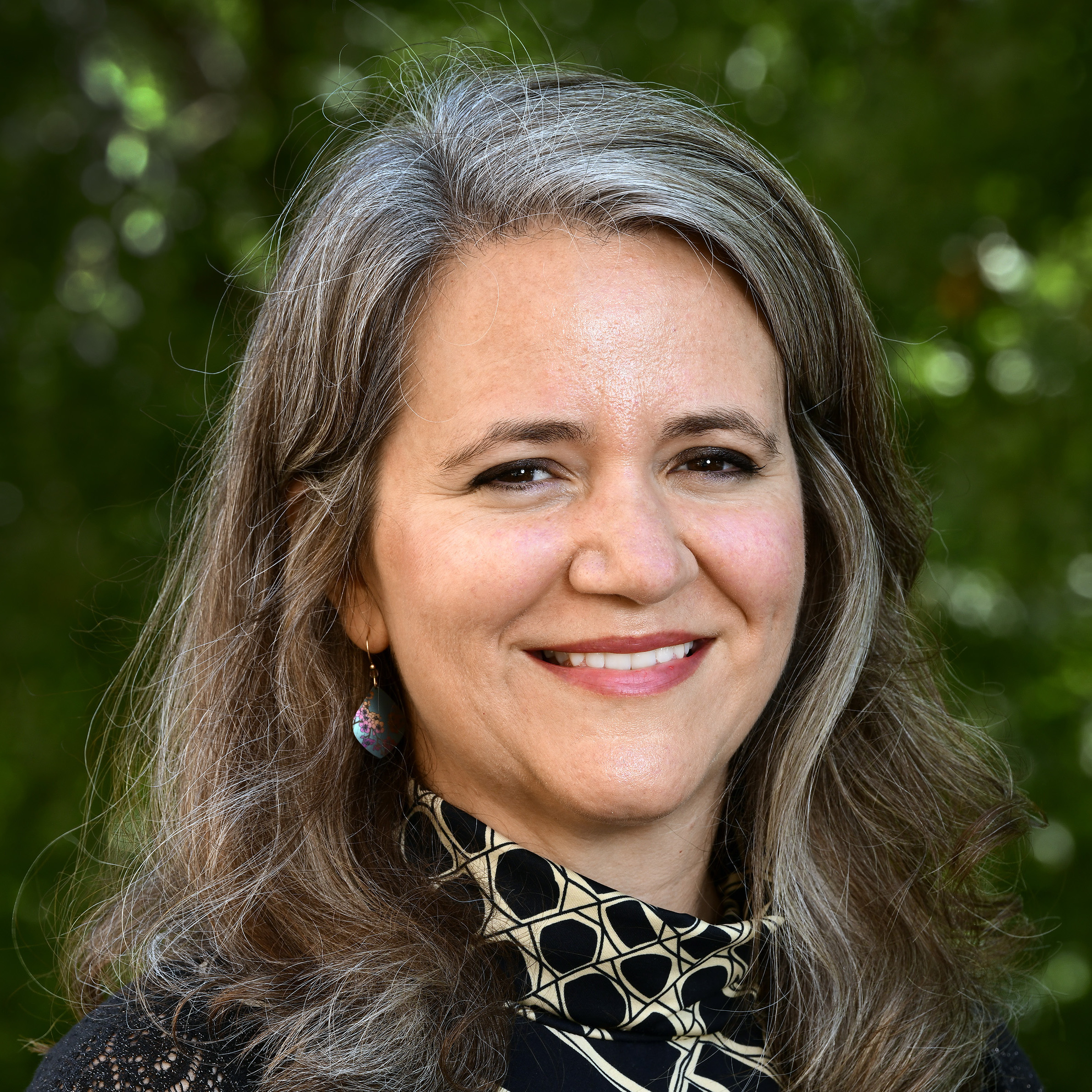
In 2022, Dr. Tammy Collins joined the Burroughs Wellcome Fund (BWF), a nonprofit philanthropic organization whose mission is to improve human health. At BWF, Dr. Collins serves as a Program Officer where she directs the Career Awards at the Scientific Interface (CASI) program and the Innovations in Regulatory Science Awards (IRSA). She serves on the US National Academies of Science, Engineering, and Medicine’s (NASEM) Forum on Drug Discovery, Development, & Translation as well as NASEM’s Forum on Regenerative Medicine. Prio read more...
Innovation in Regulatory Science Awards at Burroughs Wellcome Fund —Preview of the Latest Technologies and Progress Towards Equitable Clinical Outcomes
The process of translating biomedical discoveries into new therapies has become increasingly complex in light of evolving science and technology, and requires that the science of regulation keep up with the advances in biomedical science and technology. Furthermore, there is heightened attention on the health disparities faced by minoritized individuals. These disparities could be partly addressed by attending to the role of regulatory science in ensuring that the safety and efficacy of new (and old) therapeutics and technologies are examined in individuals from diverse ancestral backgrounds, with the goal of advancin read more...
Francesco Cubadda, Ph.D.
Senior Scientist and Team Leader
Istituto Superiore di Sanità - Italian National Institute of Health (ISS, Italy)

Dr. Cubadda is Senior Scientist and Team Leader at the Italian National Institute of Health with expertise in analytical sciences, exposure assessment and toxicology. He leads a group with a long track record in research on analytical determination and toxicology of nanomaterials as well as risk assessment of nanotechnology applications. Current interest is mainly in the area of NAMs in nanotoxicology, in which he coordinates international projects (NANOCELLUP, NAMS4NANO Lot 3). Expert in food safety risk assessment, in both t read more...
EFSA NAMs Case Study on Nanocellulose: the NANOCELLUP Project
Nanocellulose (NC) is an emerging material in the food sector with several prospective applications. Three main types of NC exists, i.e. bacterial NC (BNC), nanofibrillated cellulose (NFC), and cellulose nanocrystals (CNC). The biological sources and processing conditions affect several physicochemical parameters of NC. CNC usually consists of rod-shaped crystals. NFC consists of fibrils composed of fibres with a length up to 2-3 μm; nanofibers are even longer in BNC and organized in networks. For all the NC types, the diameter is very small, as low as 5-10 nm. A NAM-based IATA for addressing data gaps in the assessmen read more...
Jean Lou Dorne, Ph.D.
Senior Scientific Officer in Toxicology
European Food Safety Authority (EFSA)

Dr Jean Lou Dorne has been working in EFSA as a Senior Scientific Officer in Toxicology since 2006 and is currently working in the preparedness team of the Methodological and Scientific Support Unit. Previously, he spent 9 years at the University of Southampton between a PhD and 5 years of postdoctoral research UK on “human variability in kinetics and metabolism and refinement of uncertainty factors for chemical risk assessment”. His work focuses on NAMs in chemical risk assessment, toxicology, ecotoxicology including developm read more...
TK Plate, an open access platform for TK and TD modelling
New approach methodologies (NAMs) include in vitro, in silico and in chemico methods to support the move towards the integration of mechanism-based understanding of chemical toxicity and the reduction of animal testing in chemical risk assessment. Amongst such NAM-based approaches, biologically-based models are increasingly applied and allow the derivation of quantitative metrics related to toxicokinetic and toxicodynamic processes for hazard and risk characterisation. Relevant biologically-based models include physiologically-based kinetic (PBK) models and toxicokinetic-toxicodynamic (TKTD) models such as the standard read more...
Prof. Pierre Eftekhari, Ph.D.
Founder of Inoviem Scientific

Clinical physiologist and PhD in biology with 23 years of experience in drug discovery and drug development. Founder of Inoviem Scientific highly focused on personalised medicine using proprietary technologies and Artificial Intelligence platform to help pharma and biotech companies in develop of their compounds from early discovery to patient. Professor in experimental medicine at University hospital KSMA in Bishkek in connection to Germane higher education.
Hong Fang, Ph.D.
Senior Health Information Scientist
National Center for Toxicological Research (NCTR)
U.S. Food and Drug Administration (FDA)

Dr. Hong Fang is a highly accomplished Senior Health Information Scientist at the US FDA, bringing over 20 years of experience in computational science, data science, chemoinformatics, toxicoinformatics, and bioinformatics to her role. At the FDA, Dr. Fang spearheads bioinformatics research and is responsible for the development of tools that support FDA's health informatics initiatives. A comprehensive list of the currently available software tools and informatics systems can be found on NCTR/FDA webpage: https://www.fda.gov/ read more...
FDALabel: A tool to facilitate regulatory application of drug labeling at FDA
FDALabel is a powerful database tool developed by NCTR/FDA to facilitate the regulatory application of drug labeling documents at the FDA. This tool manages a comprehensive collection of approximately 145,000 FDA SPL (Structured Product Labeling), which are electronic digital labeling containing crucial scientific information for the safe and effective use of FDA-regulated products. With web-based application and intuitive search functions, FDALabel enables users to perform full text searches or customize queries by combining labeling sections and subsections, document types, and more. The tool, hosted on Amazon Web Se read more...
Anil Patri, Ph.D.
Director, Nanocore and Chairs FDA’s Nanotechnology Task Force
National Center for Toxicological Research (NCTR)
U.S. Food and Drug Administration (FDA)

Dr. Anil Patri serves as the Director, Nanocore and Chairs FDA’s Nanotechnology Task Force to conduct and coordinate regulatory science research, provide reviewer training, and standards development. He serves on the Nanoscale Science, Engineering, and Technology Subcommittee (NSET) on behalf of FDA. He chairs the Nanotechnology Working Group of the Global Coalition for Regulatory Science Research (GCRSR) to address emerging challenges, consensus development and capacity building. Prior to joining FDA in 2014, Dr. Patri served read more...
William Slikker Jr., Ph.D.
Former director of National Center for Toxicological Research (NCTR)
U.S. Food and Drug Administration (FDA)

With a PhD in Pharmacology and Toxicology from the University of California at Davis, I have authored or co-authored over 350 publications that have been cited over 18,000 times with topics including developmental neurotoxicology, pharmacokinetics, systems toxicology, emerging technologies and risk assessment. I have had the privilege to mentor a dozen PhD students and over 20 Postdoctoral Fellows, serve as director of the National Center for Toxicological Research/FDA for 16 years (recently retired) and as past president of t read more...










